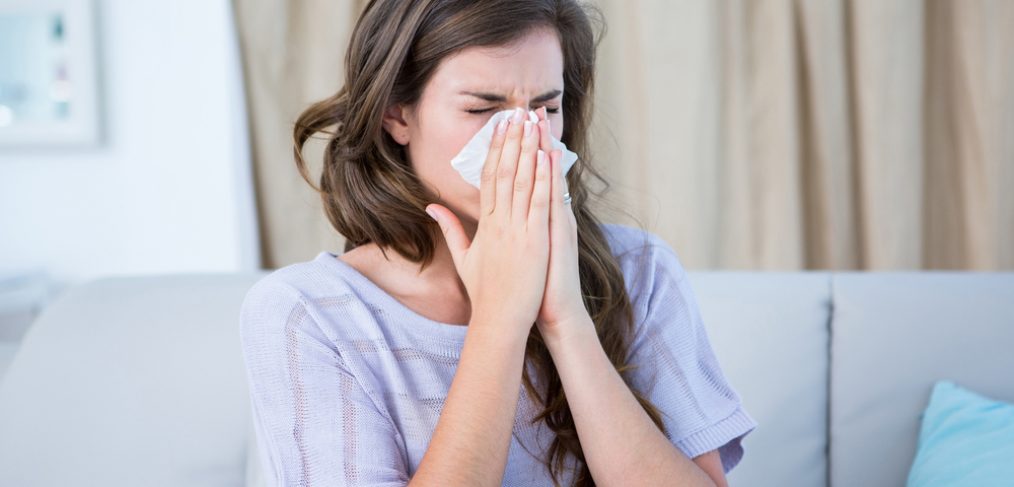Does this season have you doing the allergic salute? The allergic salute, also called the nasal salute, is defined as the gesture of wiping or rubbing the nose in an upward manner with the fingers, palm, or back of hand in and upward motion, and is a common telltale sign of allergic rhinitis.
Suffering with allergies is no fun, and while “saluting” can relieve the symptoms, it can also lead to the transfer of bacteria and germs, and, when done often enough, can result in a “transverse nasal crease,” (a crease running across the nose) which can become a permanent feature. But, worry not. Allergic seasonal rhinitis does not have to doom its sufferers to a life of inevitable unsightly scars. There are some ways to handle the condition salute free. Read on to find out how you can survive the season uncreased.
What Is Allergic Rhinitis?
More commonly referred to as allergies or hay fever, allergic rhinitis happens when your immune system has an extreme reaction to air particles that you breathe. Your immune system reacts by attacking these particles, also called allergens, which causes symptoms, like runny nose and sneezing.
Unfortunately, people with allergies can suffer from the symptoms for many years. They may occur at certain times during the year or at random times. Sinusitis and ear infections are other allergy related problems. Symptoms may become less severe over time and allergens may have less of an effect.
Symptoms
Some of the most common symptoms of allergic rhinitis are repeated sneezing, especially right after waking up in the morning and a runny nose with post-nasal drip. The nasal drainage is usually thin and clear, but may become thick, cloudy and yellowish if there is a sinus or nasal infection involved. Other signs of rhinitis are watery and itchy eyes and itchy ears, nose, and throat.
How Is It Caused?
Pollen from grasses, trees, and weeds is the biggest cause of allergic rhinitis. Dust mites, cockroaches, animal dander, and mold are also triggers, as are things in the workplace, such as chemicals, cereal grain, and wood dust.
If your allergies are due to pollen, your symptoms are more likely to occur when pollen levels are high. If you are affected by indoor allergens, such as dust mites, your symptoms may occur more frequently.
Treatment
While there is no cure for allergic rhinitis, avoiding the causes of your allergies can significantly reduce symptoms. This may require frequent house cleaning to eliminate animals dander, mold, and dust. You may also want to stay indoors when the pollen count is high.
Over the counter medicines are available, but you may want to talk to your doctor first is you have another existing health condition. or are pregnant or breastfeeding.
If allergies are severe, immunotherapy, such as allergy shots, is another option for prevention or reduction of symptoms.
How are you surviving this allergy season? Are you doing the nasal salute, or perhaps you are giving your allergies quite a different salute. Let us know what you do to cope.




